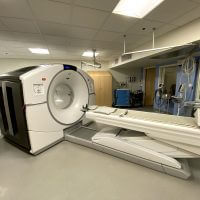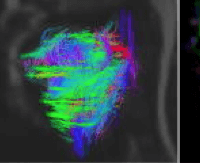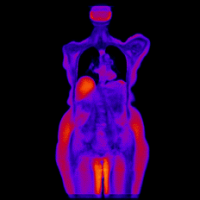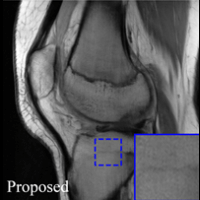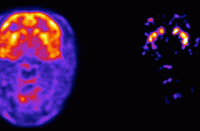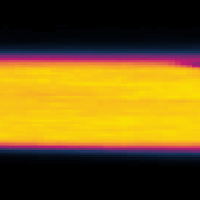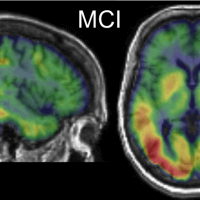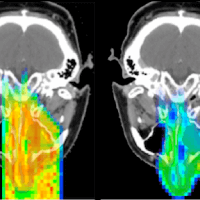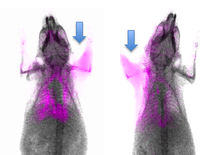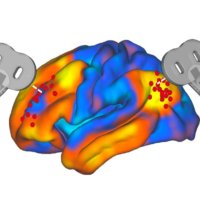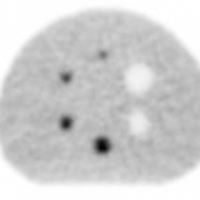
Image Generation and Clinical Assessment
Developing rigorous evaluation methodology for objective assessment of image quality for lesion detection and activity quantitation tasks.
The Gordon Center is conducting work at the forefront of quantitative PET in brain, oncologic and cardiac imaging. This webpage summarizes some of the research performed in the Center in kinetic modeling of neurotransmission, cardiac perfusion and mitochondrial function, simultaneous PET-MR imaging, in-room PET monitoring of proton therapy, high sensitivity/resolution brain imaging, quantitative dual tracer PET and SPECT, and objective assessment of image quality for estimation and detection tasks. More information about our research areas can be found in the links below.

